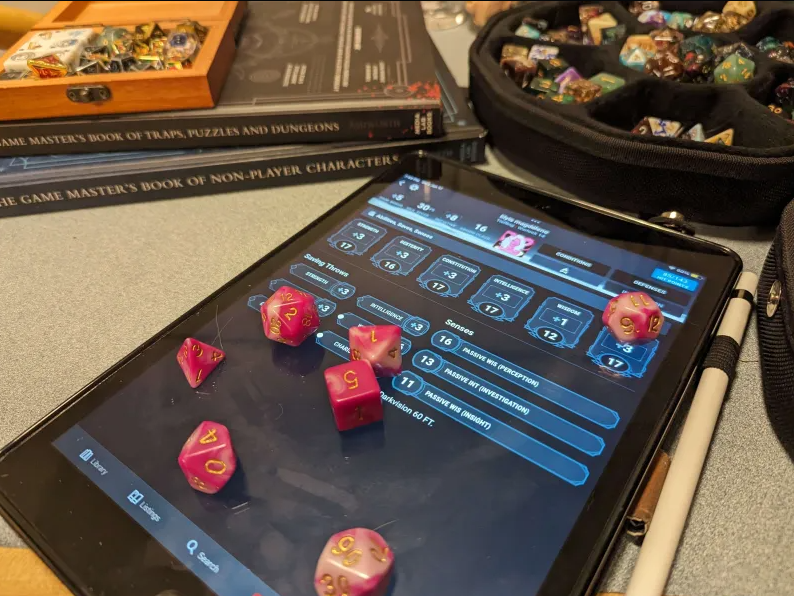
Life is not always rainbows and sunshine. Sometimes it is stressful, sometimes your apartment floods, and sometimes you feel down. Escapism, in moderation and within reason, is important to help manage the daily tolls of life.
Every week, I get together with six other people to play a Star Wars tabletop Role Playing Game. For three hours each week, I can just ignore the rest of my responsibilities and let some weight off, have fun while not having to think hard about it. It helps you escape the harsh truths of reality: you can become anyone or anything you want. You can be whatever you want to be, regardless of who you are in the real world.
Entertainment has no shortage of diversity. RPGs have become essential to modern gaming, ranging from video games to tabletop games to interactive movies.
They share a general formula: you play the role of a character and experience their story while making important decisions about their life that lead to interpersonal growth that coincides with skill advances — simple, yet so incredibly effective at bringing all manner of people together. RPGs are diverse and include the famous Dungeons & Dragons, Cyberpunk 2077 and even Pokémon.
Why play an RPG, though?
One of the greatest benefits of participating in RPGs is social growth. Locally, playing D&D at SPU has introduced me to at least ten new people and helped me meet people outside of the spaces I normally inhabit. I am a computer science major, which leads to most of my time being spent on the upper level of Otto Miller Hall.
Through RPGs, I met other SPU students from vastly different walks of life, from actors to researchers. I expanded my friend group thanks to simple once-a-week, few-hour meetings. Playing with new people also allows for you to act in ways you normally wouldn’t. It gives you the freedom from your existing “perception.” For me, it allows an escape from my thoughtful and precise tendencies so that I can be headlong and thoughtless.
It’s also fun to be creative as a group, as it leads to unique and hilarious situations such as buying a dress for R2-D2, befriending a Minotaur with Legos, or asking a dragon to kindly not burn me alive and succeeding (good luck works wonders with game masters that go along).
Group creativity is always funny and entertaining, especially when it’s improv on everyone’s part. Each person brings their flavor to the table, which always shows in the antics. I once had a chemistry major interrogate a witch about the composition of her “potions,” just to learn she was, in fact, telling the truth. This left the person running the game to make up the chemical composition of the potions with no prep time, leading to a “sort of Dove hand soap” health potion.
What makes these so enjoyable? Control! People love to be the decision-makers, which extends to the media we consume. Though other genres may also allow for choice, RPGs take it to ridiculous levels, such as accidentally throwing an air fryer at my friend for six damage or hiding behind a three-foot-tall gnome as a seven-foot orc. RPGs are designed for your choices to further the plot, essentially giving control over how the story unfolds. You can never undermine how important control is, and RPGs help us regain a sense of control in a chaotic world where sometimes it fades from us.
Although RPGs often use a traditional fantasy setting, they exist in every context, from a cyberpunk capitalist dystopia, an alternate WWII history, or even just modern day with a twist such as embodying a magical version of myself in the modern world. Good RPGs have great stories, but great RPGs have amazing settings.
The combination of player agency and self-driven improvisation creativity creates a memorable experience that is always unique to each session and player group. There is truly no repeat of an RPG session. Tabletop RPGs are an increasingly popular way to meet new people, let off steam and exercise creativity. With so many campaigns in and around the university, there’s little reason not to try one. It might just change your life.















































































